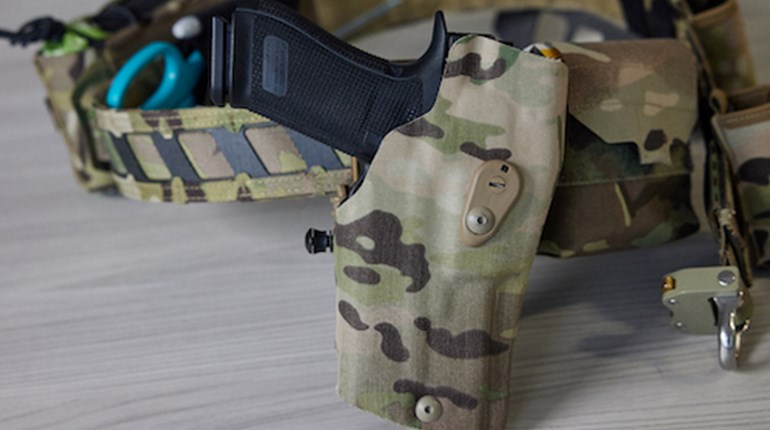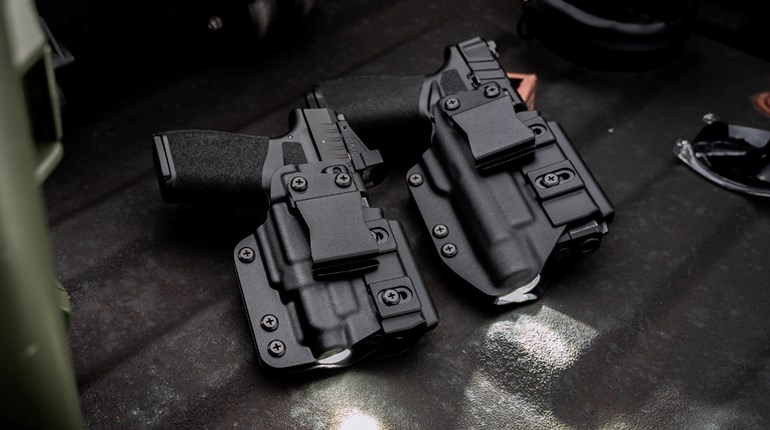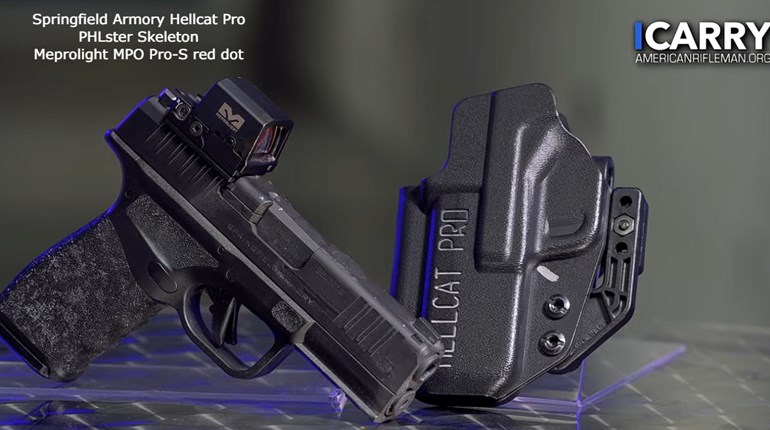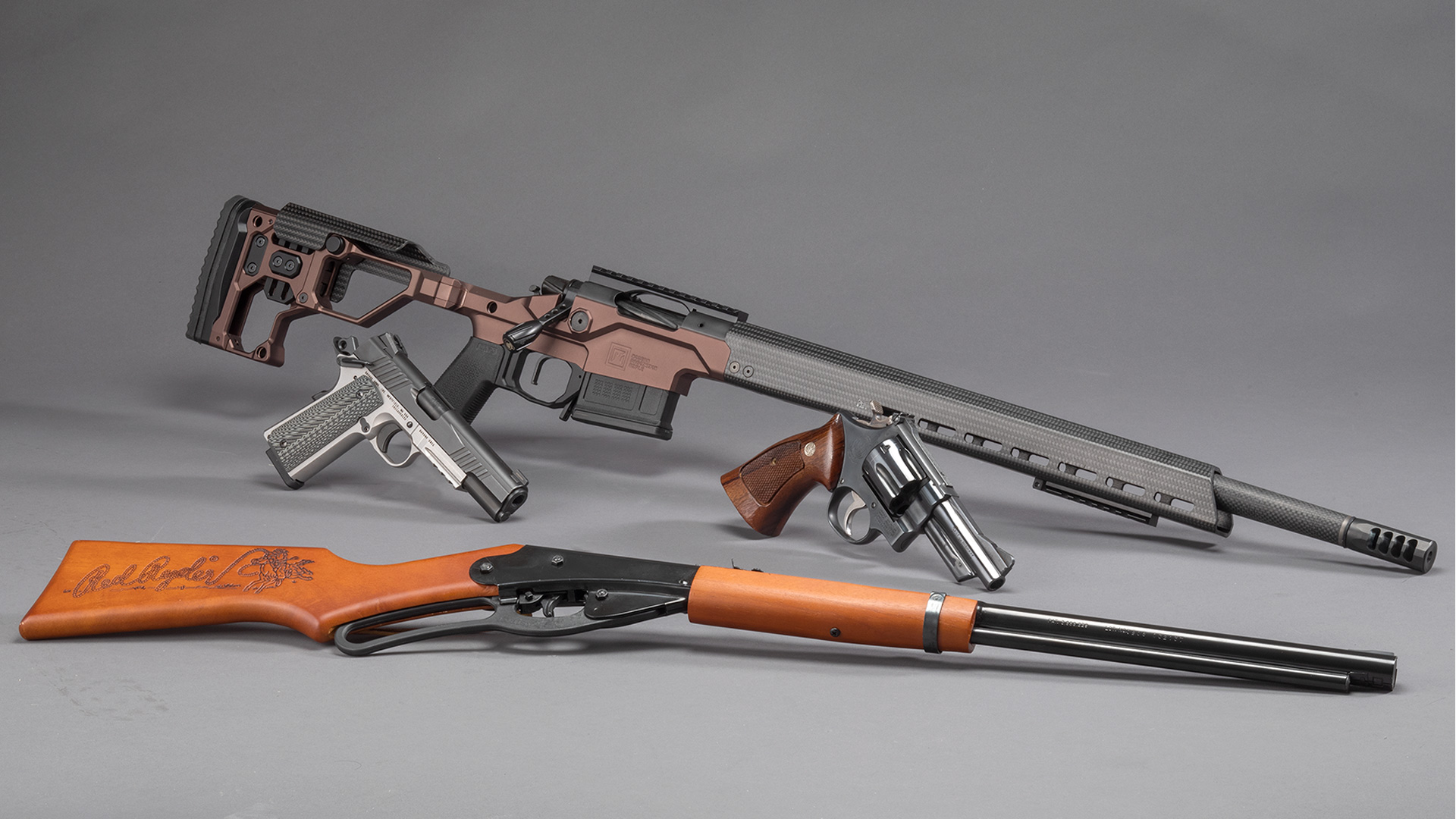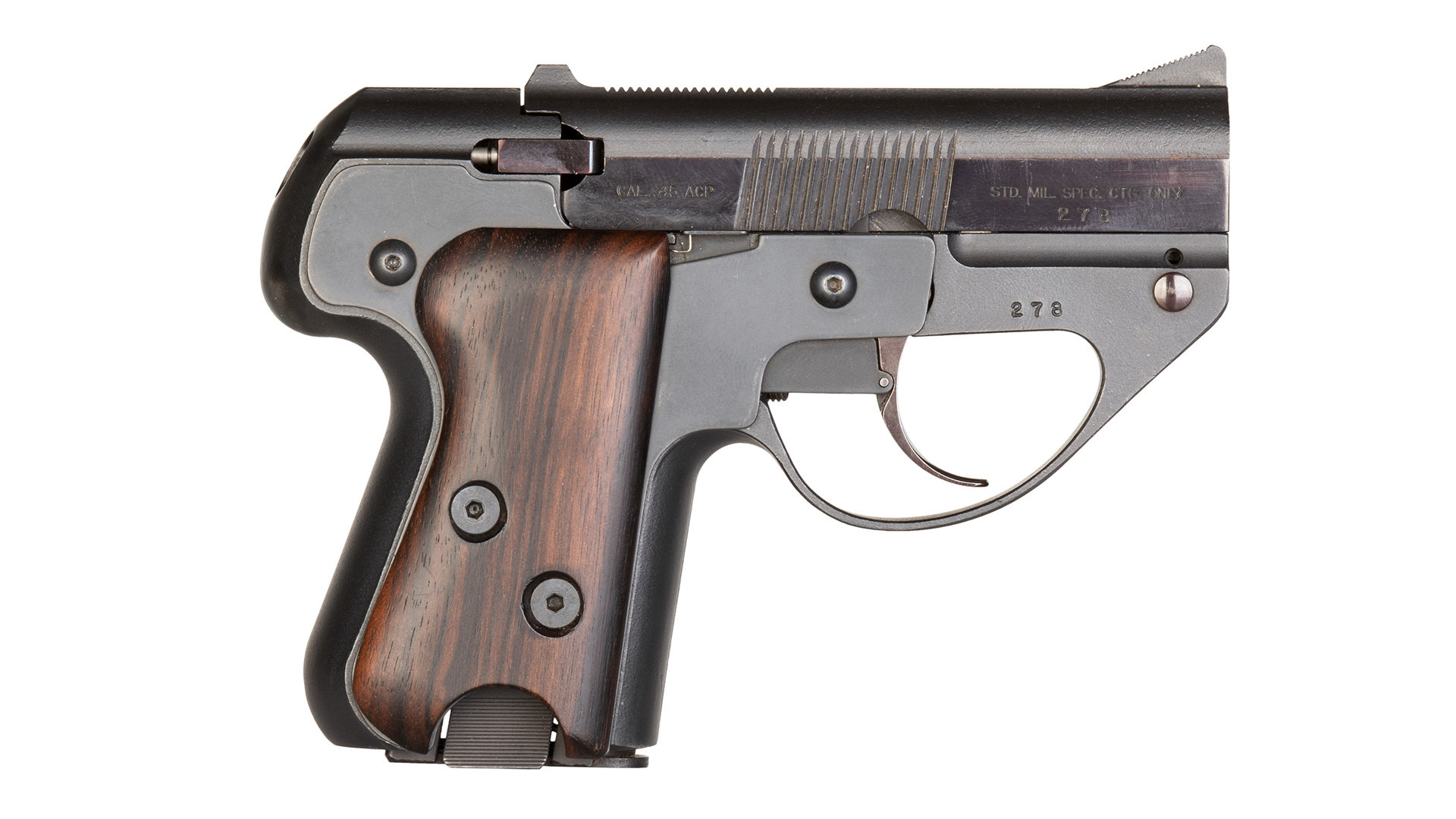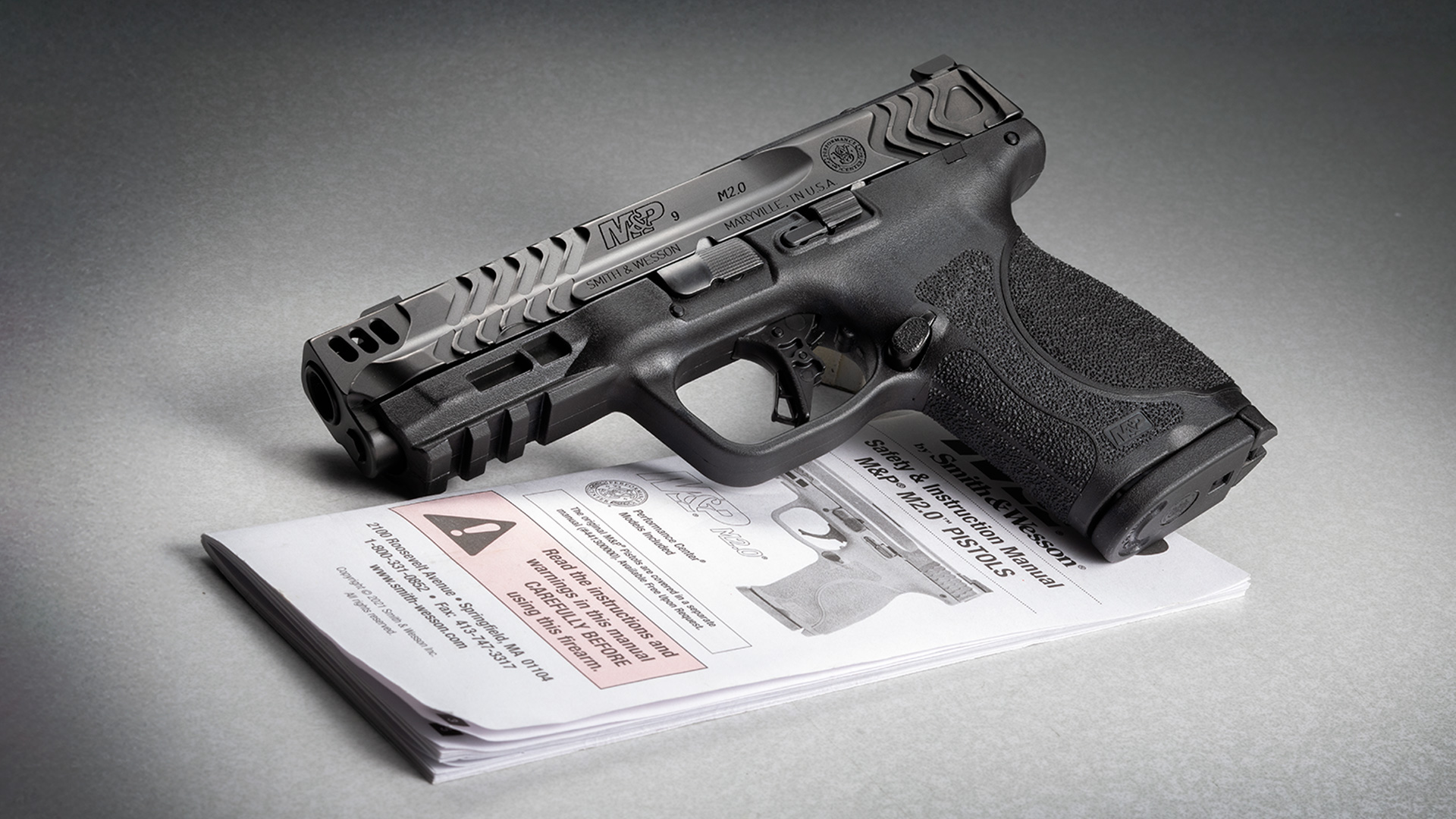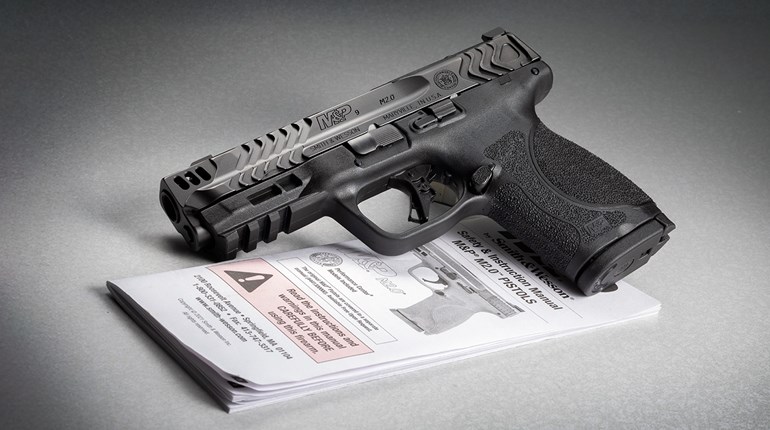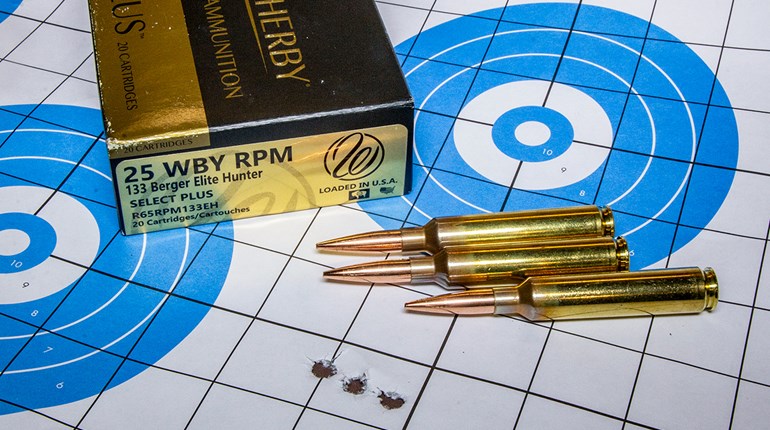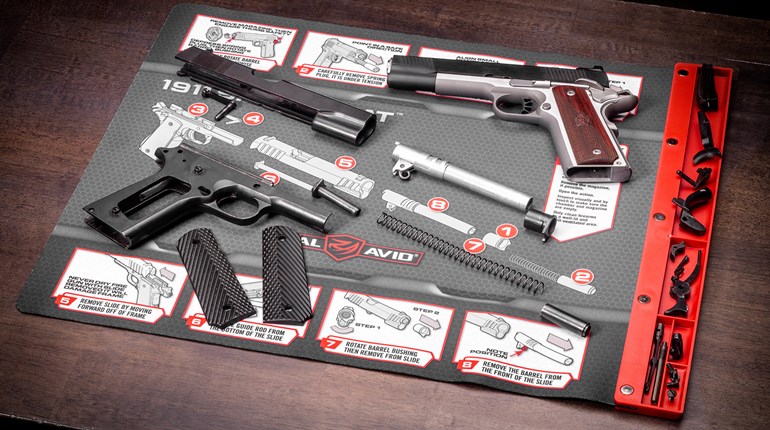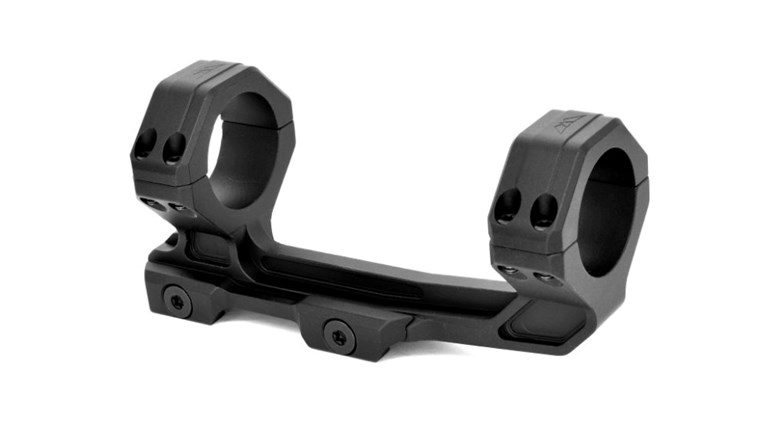For today’s "I Carry" spotlight, we’re going to take a look at a few holster options on the market, each constructed with a combination of different materials.
Each of these holsters do what a holster ought to do, which is provide secure friction retention of a holstered firearm, prevent access to the trigger and allow for a fast, trouble-free draw. However, the differing construction means that each of these holsters have different pros and cons. Let’s take a look at them.
Vedder Kydex OWB Holster
To start with, we’ve got a Glock G19 Gen 5 inside this Vedder LightDraw OWB holster, which is constructed entirely from Kydex. In recent years, Kydex has become a go-to material for holster-manufacturing, and there are plenty of good reasons for that, which we’ll go over in a minute. First, though, we talk about Kydex a lot, but what are we really talking about? What is Kydex?
Kydex was developed in the 1960s as a durable, lightweight, moldable thermoplastic for use inside airplanes. More generally, Kydex is considered an acrylic-polyvinyl chloride material, which sounds fancy, but we’ve all seen polyvinyl chloride before. More commonly, it’s referred to by its acronym, PVC, and can be found in any hardware store. The added acrylic allows the already-strong PVC to be formed into more-complex shapes when heated, and once it’s formed and cooled, the acrylic then provides rigidity.
Thanks to these properties, Kydex holsters are durable, lightweight and ready-to-use straight from the box, since each is form-fitted to the contours of a particular handgun. Because it’s polymer, your holster will never lose its shape, will never rot and will never wear out. A good Kydex holster will last indefinitely.
However, there are some drawbacks to its rigidity. All-Kydex designs don’t have any give and have to be contoured to the body in order to provide comfort. Even with accommodations, a solid Kydex holster in the waistband can cause discomfort if it isn’t designed well, since edges of the polymer can jab into your body. That’s why it’s worth it to get a quality Kydex holster from a well-respected manufacturer. It’s more likely to provide comfort during all-day carry.
Looper Leather OWB Holster
Now, we’re going old-school with this Looper Leather holster designed for a 1911. There’s no question that leather has a look to it that Kydex just can’t quite match, and that’s why you’ll see leather holsters used as foundations for fine finishing and hand-tooling. Leather also has much more give and flex than Kydex, so all-leather holsters will contour to the curves and folds of the body better than all-polymer designs. For IWB designs, this is particularly nice, since leather often feels more comfortable up against skin than Kydex.
However, an all-leather holster requires much more maintenance than a Kydex holster in order to remain safe and usable. Leather will absorb moisture, skin oils and dirt that Kydex won’t, so a leather holster needs to be cleaned regularly to prevent corrosion and scratching on your firearm. In addition, unlike a Kydex holster, leather holsters often need final fitting when they’re new. One trick we use is to wrap a gun in a plastic bag and then leave it inside the holster for a day or two to give it some breathing space. This loosens the friction retention just a bit, so your pistol won’t get stuck in the holster during the draw. One other element to note is that good holsters in this category often require high grades of leather and multiple stitched layers for reinforcement. This extra time and material often mean you’ll pay more for a quality leather holster than you will for a quality Kydex holster.
CrossBreed Hybrid OWB Holster
So, Kydex has its benefits and leather has its benefits. Why not combine them into the perfect holster? That’s the idea behind today’s popular hybrid designs, like this DropSlide from CrossBreed, which is designed for a Glock G19. Most of these holsters feature a thermoformed Kydex half-shell that’s fitted to a specific handgun model. This provides the security and rigidity of Kydex and offers that tactile “Click!” when reholstering. However, instead of having more Kydex on the body-side of the holster, there’s a leather backing plate. These vary in size, but the idea is that leather will have more give and be better-able to contour to a wearer’s body while also providing a cushioned surface that’s more tolerable for all-day wear.
One of the drawbacks of a hybrid design is that the leather backer often doesn’t contour to the shape of a holstered handgun. This means that friction-retention relies on a wearer’s belt pressing the holstered gun up against the Kydex half-shell tightly. Therefore, hybrid designs don’t often offer the same level of retention and security as an all-Kydex or all-leather design that’s fully form-fitted to the gun. Additionally, one side of your handgun is still exposed to leather, and if left uncared for, leather can retain moisture and dirt that will corrode or damage your firearm.
These three holster options represent just a taste of the incredible number of holster designs on the market, and there are thousands of designs that can work for your everyday-carry kit. At the end of the day, a good holster does three simple things: prevents your gun from firing when holstered, provides security and retention and allows for a full firing grip at the start of a draw. Find a holster that does those three things, and you’re doing pretty well. Stay tuned for more in our “I Carry” series and see all of our videos and articles at ShootingIllustrated.com.
I Carry Spotlight: Holster Construction
Support NRA Shooting Illustrated
DONATE
** When you buy products through the links on our site, we may earn a commission that supports NRA's mission to protect, preserve and defend the Second Amendment. **

